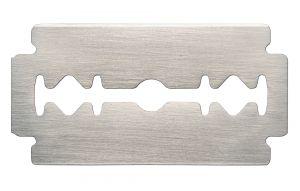Learning to live with the Suicide Machine
 It’s hard not to twin the phenomenon of the Web 2.0 Suicide Machine, as reported in Time this week, and the release of Jaron Lanier’s new manifesto against Internet hive think You Are Not a Gadget.
It’s hard not to twin the phenomenon of the Web 2.0 Suicide Machine, as reported in Time this week, and the release of Jaron Lanier’s new manifesto against Internet hive think You Are Not a Gadget.
On the one hand, you have long time technology analyst describing the ensnaring culture of the Internet hive-mind. On the other hand, you have a techology company offering a way out: kill your online self.
Lanier is pessimistic about social contract implied by open-source, socially networked culture. Others might champion the freedom. Lanier says: “The basic idea of this contract is that authors, journalists, musicians and artists are encouraged to treat the fruits of their intellects and imaginations as fragments to be given without pay to the hive mind. Reciprocity takes the form of self-promotion. Culture is to become precisely nothing but advertising.”
Not very many writers, journalists, musicians or artists who’ve been using FB or Twitter for very long will have missed that at least one element of Lanier’s critique is painfully true. There are simultaneous pressures to self-promote, and to do so for less and less money.
The culture that survives after the content has been completely de-monetized (to use the web 2.0 jargon) is, as Lanier suggests, about “precisely nothing but advertising.”
If that situation doesn’t appeal, perhaps one solution really is to have the folks at the Web 2.0 Suicide Machine expunge your virtual self from the web: every FB post, every photo, every tweet. Judging from the website blog, plenty of people have done so already. Some have even left gloaty little suicide notes. Glad to be out of the system.
![]()
Michelin Star Me…
I thought about Lanier in connection with a completely different article recently, the wonderful (exhaustive) account by New Yorker conributor John Colapinto about his lunch with an undercover Michelin inspector. Michelin, of course, are the people who hand out those reputation boosting Michelin stars against a standard that not everybody thinks is either objective or useful.
Still, chef’s careers have been known to rise and fall on the strength of that arbitrary bit of old-French fussiness known as a Michelin star. Some, on losing their stars, have even been known to commit real suicide.
But in his article, Colapinto quotes Daniel Boulud in what may put the perfect point on this discussion, that balancing act between wanting to please those who give out the stars, and the understanding that you’ll drive yourself mad doing so.
“Maybe the success I have today…” (Colapinto quotes Boulud saying) “…is because we keep giving pleasure in very simple ways or sometimes in a very spontaneous way and without thinking, Oh my God, am I perfectly consistent with that dish? I mean, Did I create the masterpiece where I don’t need to change anything? I just need to program it now?”
Of course, anyone who’s eaten one of Boulud’s hamburgers knows that he gets paid with or without the Michelin stars. Facebookers, Twitterers, Bloggers – for whom the stars are pageviews, and for whom Google Analytics is our mysterious inspector – the stars may be all they have.
In which case your choices might well be down to two: live with it, or check out of Web 2.0 altogether.
